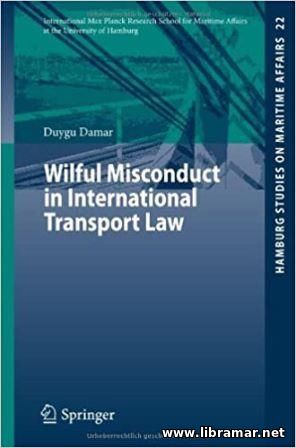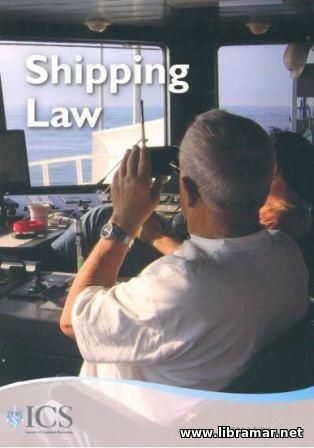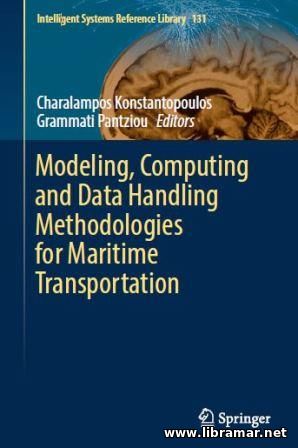 The essential idea of the international conventions that are governing the maritime transportation industry of today is limiting the carrier’s liability, and this is what the present book is dealing with. Apart from the introductory part, the content of the volume is arranged in three pain parts.
The first part gives some interesting historical background – according to the author, good understanding of it will serve as a foundation for better catching the processes taking place today – here you will read about the liability limitation, willful misconduct and its roots.
The second part if devoted to the subject of the willful misconduct as applied to the transportation industry, particular maritime transportation; however, the conventions providing the regulatory framework for the other transportation types have also been paid attention here.
Finally, the third part of the book is dealing with the proof and concept of fault, concentrating on such important aspects as causation and degrees of fault. The publication is an absolutely must have for the people with the professional interest in the transportation law owing to the amount and quality of the information and knowledge it offers.
 People need vessels and will always be connected with shipping. Nowadays, fuel is transported by sea and the oil tankers and LNG/LPG carriers provide necessary resources for generating energy feeding our homes. This is an absolutely excellent publication for those studying or interested in the shipping law. The container vessels transport different types of goods including food, while the reefers actively ship various raw materials.
The maritime shipping law is at the base of everything done in the industry starting from concluding the new construction contracts up to and including the fuel supplies to the working vessels, bills of lading, employment of the people to work on board and many others. That is why it is deservedly treated as the integral part of the life of any single human engaged in the shipping industry. This book starts with the chapter on the ship ownership, covering the property and legal titles, ship registration, jurisdiction and many other important aspects.
The legal aspects of charter-parties, time-charter and bareboat charter parties, and bills of lading are dealt with in the next three chapters. The remaining chapters address the major conventions governing the marine transportation of cargo, general average, collision, environment pollution, limitation of liability and other aspects.
 Nowadays, in today's world, it becomes really essential to properly understand the international trade - this is very important for everyone involved in the shipping law, finance and banking. The present publication by Indira Carr offers readers a thorough analysis of all complexities associated with the international sale transaction.
The author has mainly focused on the international trade of goods and the relations arising from the sale contracts. The content of the book is looking at cargo transportation together with the related payment and insurance issues, EDI, standing for the electronic data interchange and electronic commerce, resolution of the disputes including arbitration, standard terms of trade and many other aspects of international trade.
This is an essential reading for the students of the international commercial and trade law, business studies, finance, banking and all associated fields. Will also be of great practical use for the future and practicing maritime lawyers.
 There are many articles and books available today and covering the jurisdiction and arbitration considered two mechanisms developed to ensure the predictability and impartiality of the dispute resolution internationally. However, most of those publications are not dealing with the maritime context.
In addition, it shall be noted that they are quite seldom juxtaposed and there are little to no comparative treaties authored. The author of the present volume has attempted to fill this void since there were many reasons to undertake such effort. Subject clauses are connected to the transport documentation.
Since the maritime trade is of international character, quite significant portion of the internationally available forum agreements is originating from the maritime contracts. The content of this document mainly bases on the comparative approach, seeking to explain the rules existing today within the legal context and also to create a coherent system for jurisdiction and arbitration clauses, taking into account all underlying interests and economic theory.
It offers detailed answers to the major questions of jurisdiction/arbitration clauses while confronting the fundamental question of freedom limitation.
 Twelve years back the Pacific Area USCG Commander proclaimed the intention of the United Stated to push back their sea borders by about two thousand miles. This step was actually expected by him to eliminate or at least significantly reduce the terror threat faced by America. And his statement actually reflected the new attitude that concerned the policing of the world oceans not only by America but also by some other countries.
The principles of navigation freedom of the traditional Law of the Sea and exclusive jurisdiction of the Flag States is considered a serious obstacle for fighting against terror and it also affects some other security concerns. And this, in turn, has resulted in the interferences on the high seas becoming common. The shipping industry witnessed the similar scenarios when the United Stated made attempts to fight international crimes, such as the piracy and pirate broadcasting, slave trading etc.
The present volume is providing the discussion on the most important issues involved, for example the international organizations and their responsibilities, lawful conduct and associated liability, and others considered important in today's world.
 This publication was written to provide thorough examination of the negative consequences that the absence of insurance may have and had in the past, for example the special principles of the maritime liability law such as the "general average" and limitation of the maritime insurance for owners.
These principles used to serve the function of insurance for the owners in the absence of actual insurance. Nowadays. since the commercial maritime insurance is available, all of subject principles do not have any justification and my actually be interfering with the deterrence from negligence considered the most important goal of the liability law.
In fact, the author of the present work is recommending abolition of these principles and is further arguing that since the insurance is widely available and easily affordable to both parties, the main objective of the liability law shall be the deterrence as opposed to the compensation. And this is the case with the claims where both ship owners and cargo owners are invariably insured...
 The content of this document is intended to provide the detailed analysis of both economic and legal situation in the Caspian Sea region with the particular attention being paid by the author to the allocation and removal of its natural resources. The Caspian Sea is considered the largest enclosed reservoir of salt water on the planet - it is not only a fragile ecosystem featuring huge fishery resources; the area is very rich in hydrocarbon deposits.
And, it is quite obvious that the economic advantages that are gained from the development of the hydrocarbons serve as a basis for the development of the littoral countries. However, is should be noted that it also results in significant transboundary harm to the local ecosystem. The intention of the author is to contend that the growing contamination of the local environment may eventually lead to the environmentally induced conflicts.
The ongoing conflicts in the area due to the territorial claims of the riparian countries have also been dealt with in the book. The main aim of the volume is to describe the existing legal mechanisms that could potentially b used to settle the disputes thus protecting the Caspian Sea environment...
 The modern transportation of cargo by sea is one of the most important aspects of the international trade. The maritime transportation is very cost-efficient and is deservedly treated as a preferred choice when compared to the land and/or air transportation. In fact, it only adds a few percent to the overall cost of the products.
However, it normally takes much longer and there are also certain issued with the efficient integration of this transportation option with the others. In addition to that, due attention shall be paid to the safety of the transportation as well as the environment protection. The latest technological achievements and advances in the field of maritime transportation are posing the serious demands on the science requiring proper synergy of the maritime and IT fields.
It affects such important areas as the risk assessment, computational intelligence, knowledge representation and so many others, considered critical for the safe and efficient transportation. The present volume is focusing on the most interesting researches on the IT methodologies as applied to the marine transportation. There are seven chapters covering the necessary areas and giving readers a clear picture.
|







